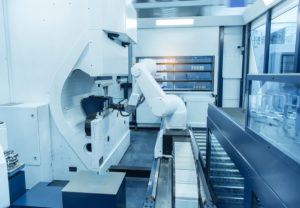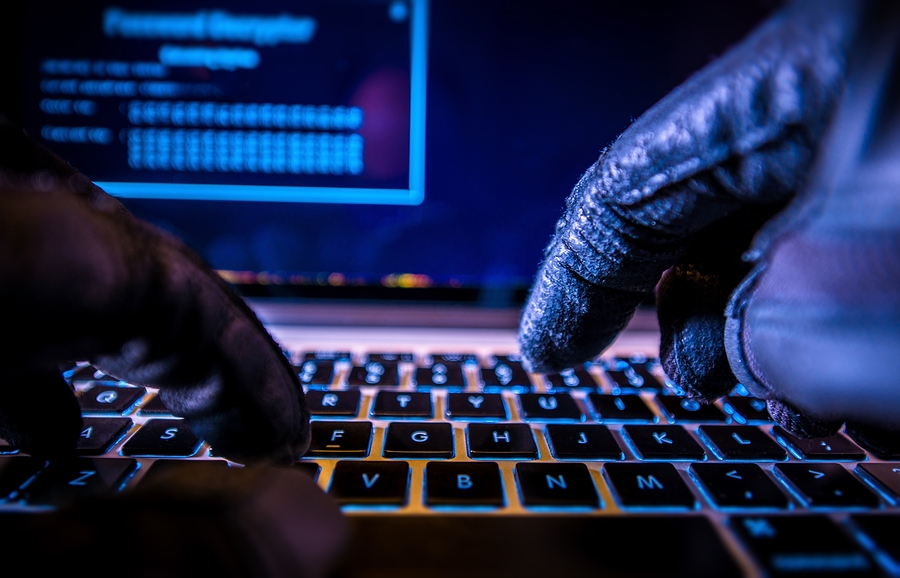Did you know that when it comes to cyberattacks, manufacturing is climbing the ranks as one the of the most attacked industries in the world? According to IBM, manufacturing was the second “most-attacked industry” in 2015.
Why are cyberattacks becoming more prevalent in factories? In part, because many manufacturers are more vulnerable. This is especially true for “lower-tech” operations, which may not prioritize security by using the latest tools and systems.
Sadly, this is making many manufacturers susceptible to attacks. Consider the WannaCry ransomware attack that occurred in May. Criminals unleashed a virus on computers running old versions of Microsoft software, locking out users and demanding money for them to regain access to their data. Hackers infected more than 300,000 machines in 150 countries in just three days — including five Renault-Nissan assembly plants.
Smart factories mean smarter criminals
 There’s another reason why cybercriminals focus their malicious efforts on manufacturing operations: The impact can be massive. Today’s cybercriminals have a host of motivations — from stealing financial information or intellectual property to causing mass chaos to making a political statement — and manufacturing facilities offer an open stage for playing these out. And as factory designers are making plants increasingly “smart” by adding internet-connected machinery, robotics, and systems, these risks become even greater.
There’s another reason why cybercriminals focus their malicious efforts on manufacturing operations: The impact can be massive. Today’s cybercriminals have a host of motivations — from stealing financial information or intellectual property to causing mass chaos to making a political statement — and manufacturing facilities offer an open stage for playing these out. And as factory designers are making plants increasingly “smart” by adding internet-connected machinery, robotics, and systems, these risks become even greater.
Consider the automotive industry, which, according to the IBM analysis, is the most attacked sector of manufacturing, accounting for 30% of the industry’s events in 2015.
Security expert Alexander Polyakov, CTO and Co-Founder of ERPScan, said a small, undetectable tweak to a robot’s controller software or welding conditions could lead to a catastrophic event for automakers and end-users. In a Forbes article, he writes, “The tiniest of variances in the performance of operational technology could cause manufacturing disruptions, leading to defective products (meaning recalls and reputational losses), production downtime, physical damage, and even injuries and deaths.”
Prioritizing cybersecurity
Because undeterred cybercriminals’ potentials are unlimited — and potentially undetectable — it’s more important than ever for manufacturers to step up their protection. Here are five simple tips for safeguarding your plant:
 Take updates seriously. It’s tempting to put off software updates because they often mean production slowdowns. However, this is a vital step. Operating systems and protective software rely on these updates to keep your plant protected from the latest threats.
Take updates seriously. It’s tempting to put off software updates because they often mean production slowdowns. However, this is a vital step. Operating systems and protective software rely on these updates to keep your plant protected from the latest threats.- Think like a criminal. What would be the most damaging thing to steal or disrupt in your business? Identify your weaknesses, then isolate and protect your valuable assets by beefing up security and limiting access to only those vital for operations.
- Educate your employees. It’s important to have internet security policies and procedures in place not only to protect your data and equipment but also to protect your employees. Educate your team members on how to handle sensitive data, improve password protection, and keep your network secure.
- Balance the costs of upgrading. It can sometimes be virtually impossible to add modern security measures to legacy machinery. Before you jump through hoops trying to add costly security measures to systems that may or may not be able to handle it, crunch the numbers on a newer tool or machine. In the long run, it may pay to upgrade.
- Be aware. While high-tech, stealthy attacks are certainly possible, hackers tend to use basic tricks and tools — like email phishing schemes — to con individuals out of sensitive information. Be on the lookout for suspicious-looking emails, web pages, and network activity.
Cybersecurity may not be as glamorous or thrilling as the latest in robotic technology or automation, but it’s just as vital for the future of your company as well as your team’s safety and well-being. Take steps today to make cyber protection a priority in your facility.
